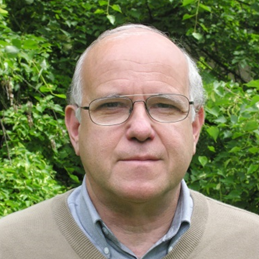
Three experts from the ISC Membership have been appointed to the UNEP’s Multidisciplinary Expert Scientific Advisory Group (MESAG). The transdisciplinary experts’ group, named by UNEP’s Executive Director, will advise the scientific credibility of the seventh edition of the Global Environment Outlook (GEO-7) assessment to be released during the next United Nations’ Environmental Assembly, in 2026.
The world is currently not on track to achieve any of the global biodiversity, environmental, or development goals, and today’s policies and actions cannot keep pace with the rate of environmental degradation. Advancing human development within sustainable planetary and social boundaries is the most important challenge for humanity and for science.
To inform global policy- and decision-makers on the paths to tackle environmental challenges and barriers, the Global Environment Outlook (GEO) will assess the state of the environment and develop different scenarios. Through actionable pathways, the GEO-7 will inform effective evidence- and science-informed recommendations to develop sustainable human systems through the most fitting policy, governance, technology, and behavioural approaches.
The number one task for societies today is to redefine sustainability. For the GEO-7, the main objective is to elaborate science-based strategies for a healthy planet. Our planet is a closed system, which means that we should act globally and strive to reduce the imbalances between different ecoregions. The MESAG broad scientific representation will contribute to solutioning the acute environmental problems the world is facing.
Ervin Balázs, General Director of the Centre for Agricultural Research in Martonvásár, Hungary.
For science to be as strong as it possibly can be, it must include the perspectives, insights, ideas, talent and voices of all scientists. Beyond opening exclusive opportunities to its Members, the ISC nomination tracks guarantee greater transdisciplinary and geographical diversity for a skillful and globally representative scientific oversight of global policy processes.
The involvement of international science is crucial to ensure assessments and recommendations are scientifically sound, but also truly representative of the diversity of disciplines and regions. Bringing forward the global voice of science will ensure that the realities of all countries are considered. The multiplicity of backgrounds, geographies, disciplines and genders will give strength to the final message.
Monica Moraes, President of Bolivia’s National Academy of Sciences
To benefit from the ISC channels of application in future international calls for experts, we invite you to sign up for our newsletters and to consider becoming a member.

Dr. Monica Moraes
Dr. Moraes is the President of the Academia Nacional de Ciencias in Bolivia. Experimented biologist, she is also Professor and Researcher at the Instituto de Ecología of the Universidad Mayor de San Andrés, in La Paz. She is additionally Editor in Chief of the “Ecología en Bolivia” journal. Dr. Moraes is an expert in the flora and vegetation of the lowlands of Bolivia and has specialized in the study of native palms.

Dr. Ervin Balázs
Dr. Balázs, is the General Director of the Centre for Agricultural Research in Martonvásár, Hungary. He leads a unit on molecular virology and genetic engineering of crops, which also includes a service facility for plant breeders to use all current molecular tools. Dr. Balázs has been involved in exploring the Cauliflower Mosaic Virus genome, including its promoters, and later he has developed a plant transformation vector based on 19S promoter of the virus. During the last two decades he has produced several transgenic virus resistant plants, such as tobacco, potato, and pepper. He is an advocate of the introduction of the new technology into the daily agricultural practice and supports internationally harmonized regulation of the biotechnology.

Dr. Yonglong Lu
Dr. Yonglong Lu (吕永龙) is a Distinguished University Professor from Xiamen University and the Research Centre for Eco-Environmental Sciences of the Chinese Academy of Sciences. He is also Chair of its Regional Ecological Risk Assessment and Environmental Management Group. His research interests include ecological impacts and risk assessment of emerging pollutants, pollution, and climate change interaction, sustainable coastal ecosystems management, urban ecological planning and assessment, environmental management and emergency response, and environmental technology innovation and diffusion policies.
Image by Thomas Richter on Unsplash.